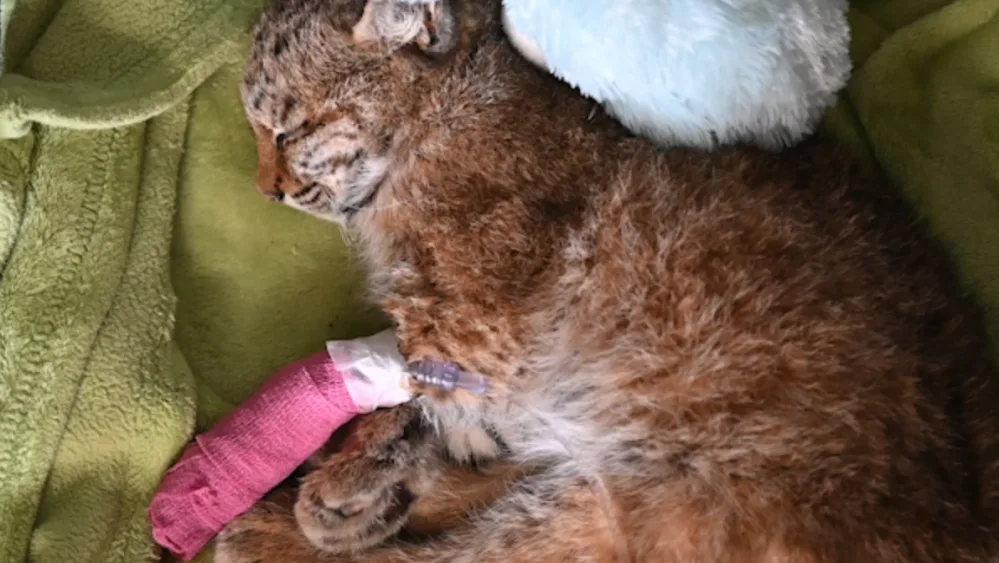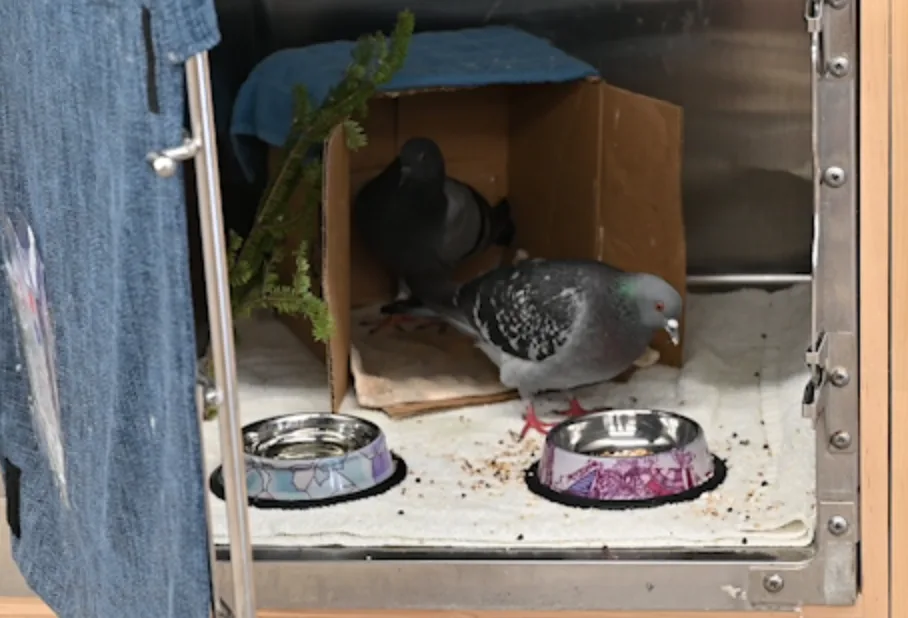
Canadian wildlife centre on nursing 4-month-old bobcat and COVID-19 impacts
Nathan Coleman chats with Hope Swinimer from "Hope For Wildlife" to talk about rescuing wildlife during COVID-19.
Hope Swinimer is no stranger to rescuing wild animals. Her organization Hope For Wildlife, in Seaforth, Nova Scotia, has rescued, rehabilitated and released over 40,000 since 1997.
Since the COVID-19 pandemic began, those numbers have been shooting upwards. Swinimer says that "right now we have more animals in today than we had all year last year."
A 4-month-old bobcat was recently rescued after is was brought into Hope's ICU convulsing, assumedly hit by a car. It's done very well with medication and treatment and recently started to use it's hind end again.Bloodwork revealed there was a big problem with its liver. "Now we're beginning to think that it might be poison involved, but we called the people in the community and they checked and couldn't see whether there was any rat poison put out or anything," Hope says.
The rehabilitation centre is up 27 percent over last year's admissions, with double the amount of phone calls coming in. Hope thinks people are becoming more aware of their surroundings with COVID restrictions connecting people with nature more.
"The phone calls are really nice because people are concerned and they're seeing things for the first time and they're getting out in nature so they have a lot of questions so that part is really nice, but there's a lot of landscaping going on, and construction work going on because people are home and able to do it, and of course it's disrupting babies that might be under that deck," she says.

The centre takes in high numbers of pigeons, with one recently coming in from Halifax after being found poisoned and struggling at the side of the road. It's now recovering after being given fluids that help flush out all the toxins.
"When we find the birds, they have vomited up corn. So they've put the poison in with the corn to get the birds to eat it because they love the corn and that's the result," Hope says.
Aside from poison, there's a new threat emerging -- facemask entanglements. Hope has yet to see a bird entangled in a face mask brought into her facility but thinks it's only a matter of time.











